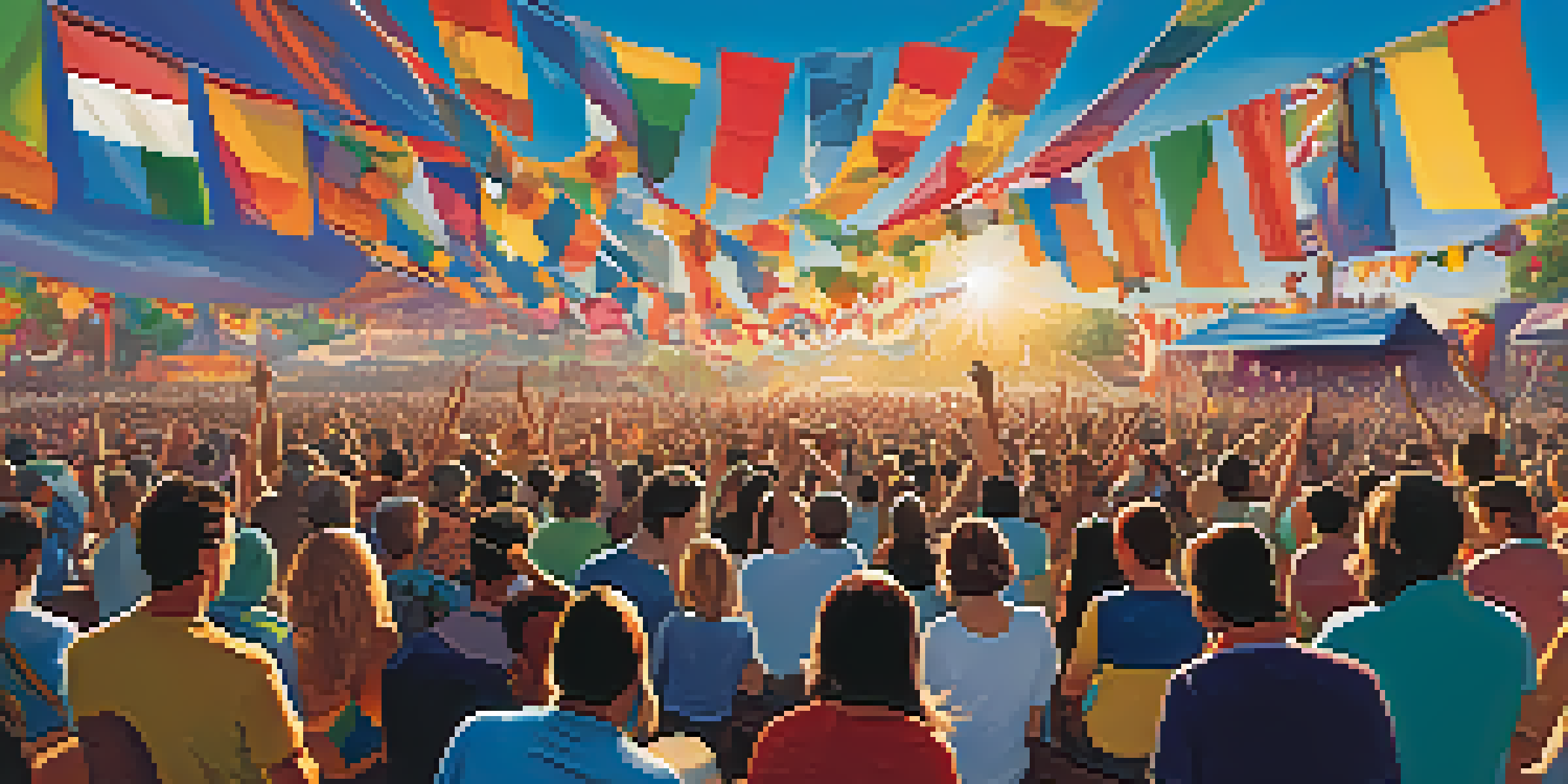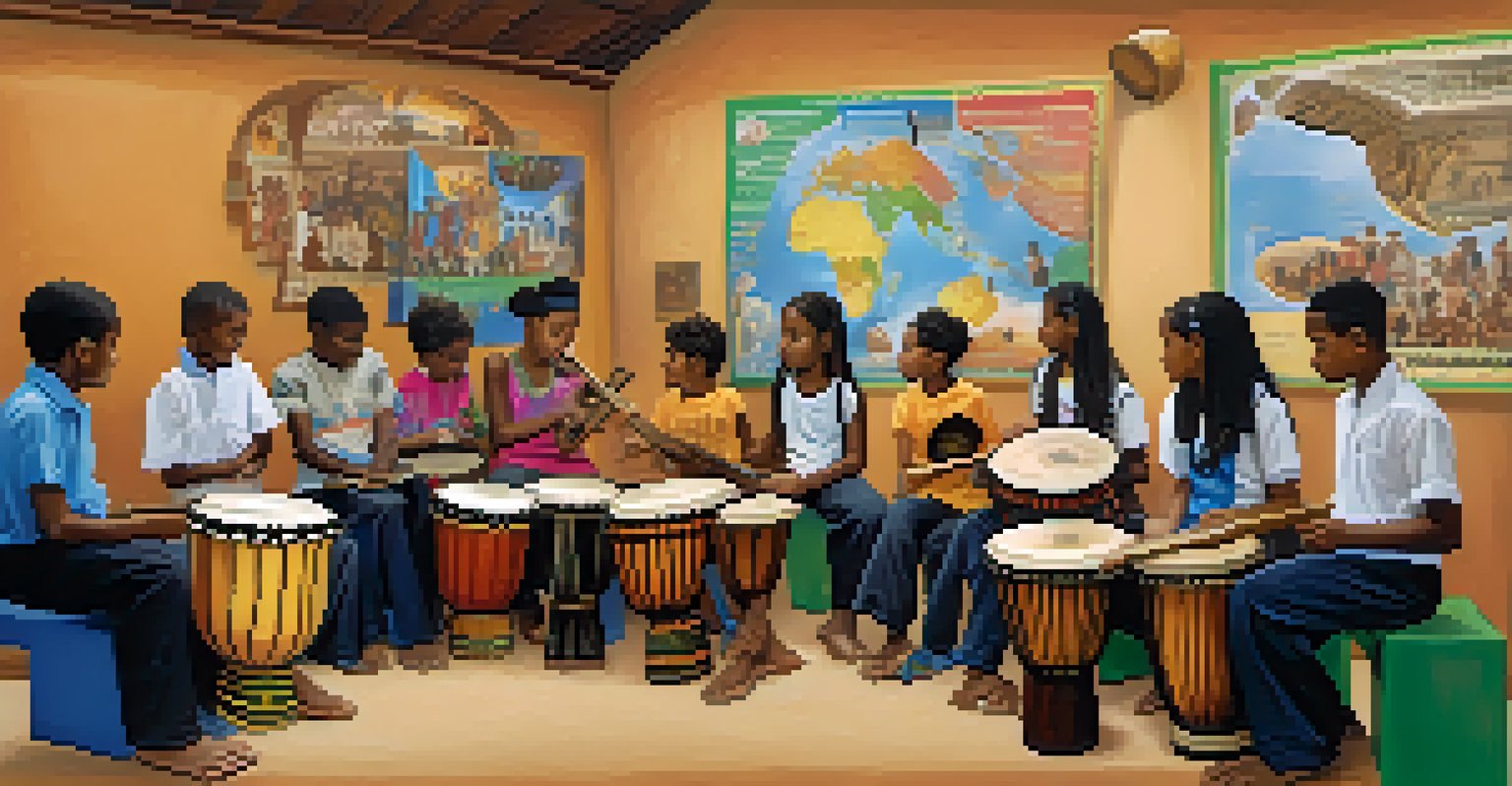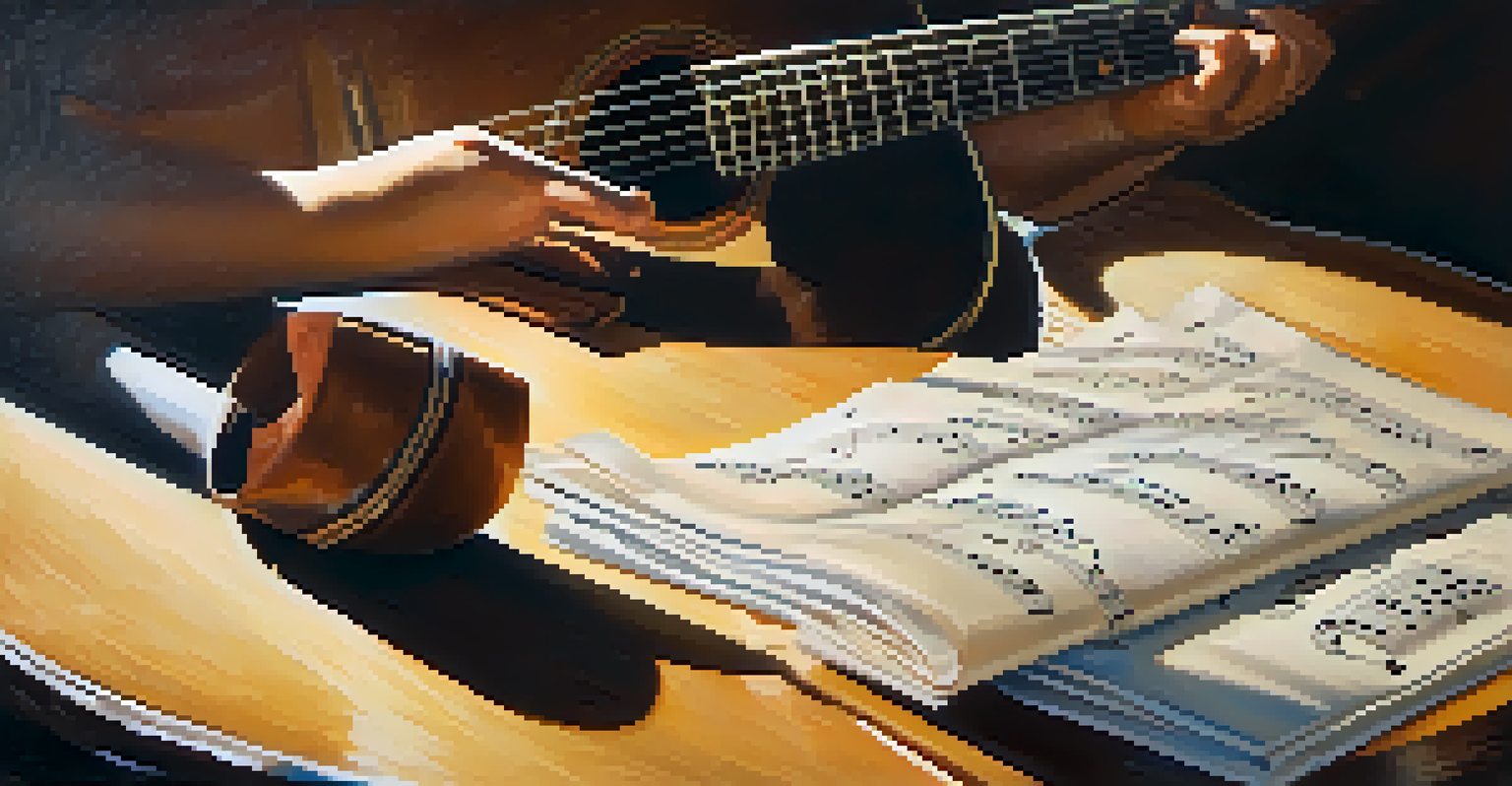Music and Cultural Exchange: Bridging Gaps Among Nations

The Universal Language of Music: A Global Connector
Music has an extraordinary ability to transcend language barriers and connect people from different backgrounds. It serves as a universal language, expressing emotions and stories that resonate with everyone, regardless of where they're from. Think about how a catchy melody can make you tap your feet, even if you don’t understand the lyrics. This shared experience forms a bridge between cultures, fostering understanding and appreciation.
Music is the universal language of mankind.
For instance, consider how popular music genres like reggae or hip-hop have roots in specific cultures yet have gained global appeal. Artists like Bob Marley or Tupac Shakur have their music celebrated worldwide, inviting listeners to explore the cultural narratives behind the sounds. This not only enriches the listeners’ experiences but also encourages a deeper connection to the artists' backgrounds.
In essence, music acts as a cultural ambassador, introducing us to diverse traditions and lifestyles. By engaging with music from different nations, we cultivate empathy, curiosity, and a sense of belonging to a larger global community.
Cultural Exchange Through Collaborative Music Projects
Collaborative music projects are perfect examples of cultural exchange in action. Musicians from different countries often come together to create unique sounds that blend their respective styles and traditions. This fusion not only produces fresh music but also allows artists to learn from one another, broadening their artistic horizons.

Take the collaboration between Shakira and Wyclef Jean on 'Hips Don't Lie.' This song beautifully combines Latin rhythms with hip-hop, appealing to diverse audiences and showcasing the power of cross-cultural partnerships. These collaborations serve as a reminder of our shared humanity and the beauty of our differences.
Music Connects Cultures Globally
Music transcends language barriers, fostering understanding and appreciation among diverse cultures.
Through these projects, artists not only celebrate their heritage but also highlight their willingness to embrace new influences. This ongoing dialogue between cultures through music can lead to innovative sounds and foster deeper relationships among nations.
Festivals: Celebrating Global Music Traditions
Music festivals around the world provide a vibrant platform for cultural exchange. Events like the Montreux Jazz Festival in Switzerland or the WOMAD festival in the UK draw artists and audiences from diverse backgrounds, creating a melting pot of musical styles. Attendees get to experience a rich tapestry of performances, immersing themselves in the traditions and stories of different cultures.
The power of music makes all the difference in the world.
These festivals often feature workshops, discussions, and collaborative performances that encourage interaction between artists and fans. For example, at WOMAD, attendees can participate in drum circles or learn traditional dance, deepening their understanding of the cultures represented. This hands-on approach fosters a sense of community and shared experience.
In essence, music festivals serve as cultural hubs, bringing together individuals who might never meet otherwise. They encourage dialogue, understanding, and appreciation, reinforcing the idea that music is a powerful tool for unity.
The Role of Technology in Music Exchange
In today's digital age, technology plays a pivotal role in facilitating cultural exchange through music. Platforms like Spotify, YouTube, and social media allow artists to share their music with a global audience instantly. This democratization of music means that a talented musician in a small town can reach listeners across the globe, breaking down geographical barriers.
For instance, the rise of platforms like TikTok has propelled many international songs into the mainstream, exposing listeners to new genres and styles. The viral nature of these platforms encourages users to explore and share music from various cultures, creating a ripple effect of cultural exchange. It's fascinating how a catchy dance trend can introduce people to traditional music from different parts of the world.
Tech Enhances Music Exchange
Digital platforms enable artists to share their music worldwide, breaking geographical barriers and promoting cultural exchange.
Moreover, technology enables collaborations between artists from different countries, even if they are thousands of miles apart. With tools for virtual recording and online communication, musicians can create together, enriching the global music landscape and fostering deeper connections.
Music Education and Cultural Awareness
Music education plays a crucial role in promoting cultural awareness and appreciation. Schools and community programs that incorporate diverse musical traditions help students understand and respect different cultures. By learning about various instruments, rhythms, and styles, students develop a broader perspective and an appreciation for the richness of global music.
Imagine a classroom where students not only learn to play the guitar but also explore African drumming or Indian classical music. This exposure encourages them to appreciate the unique stories and histories behind these musical forms. It fosters an environment of curiosity and respect, breaking down stereotypes and misconceptions.
Through music education, we can nurture future generations who value diversity and cultural exchange. By instilling a love for global music traditions, we pave the way for a more inclusive and harmonious society.
Music as a Tool for Social Change
Music has historically been a powerful tool for social change and activism. Artists like Joan Baez and Bob Dylan used their platforms to advocate for civil rights, inspiring movements and uniting people across borders. Their songs often reflected the struggles of their times, resonating with audiences and igniting a collective response for change.
In contemporary times, we see similar movements where musicians leverage their influence to address global issues such as climate change, inequality, and human rights. Groups like U2 or artists like Beyoncé often use their music to raise awareness and inspire action, bridging cultural gaps in the process. Their messages resonate across nations, encouraging solidarity and a shared commitment to a better world.
Music Education Fosters Awareness
Incorporating diverse musical traditions in education nurtures respect and appreciation for different cultures among students.
Through music, we can amplify voices that might otherwise go unheard, fostering a sense of community and shared purpose. This power of music to unite people around a common cause further reinforces its role as a catalyst for cultural exchange and understanding.
Conclusion: The Ongoing Journey of Cultural Exchange
As we've explored, music is much more than just entertainment; it's a vital thread that weaves together the fabric of our global community. From collaborative projects to educational initiatives, the ways in which music facilitates cultural exchange are diverse and impactful. Each note played and every lyric sung contributes to a richer understanding of our shared humanity.
The ongoing journey of cultural exchange through music invites us to remain curious and open-minded. As we listen to melodies from around the world, we expand our horizons and deepen our connections with others. This engagement fosters empathy and respect, crucial elements for a harmonious global society.

Ultimately, by embracing the power of music as a bridge between cultures, we can continue to celebrate our differences while finding common ground. Let's keep the conversation going, allowing music to guide us towards a more united and understanding world.